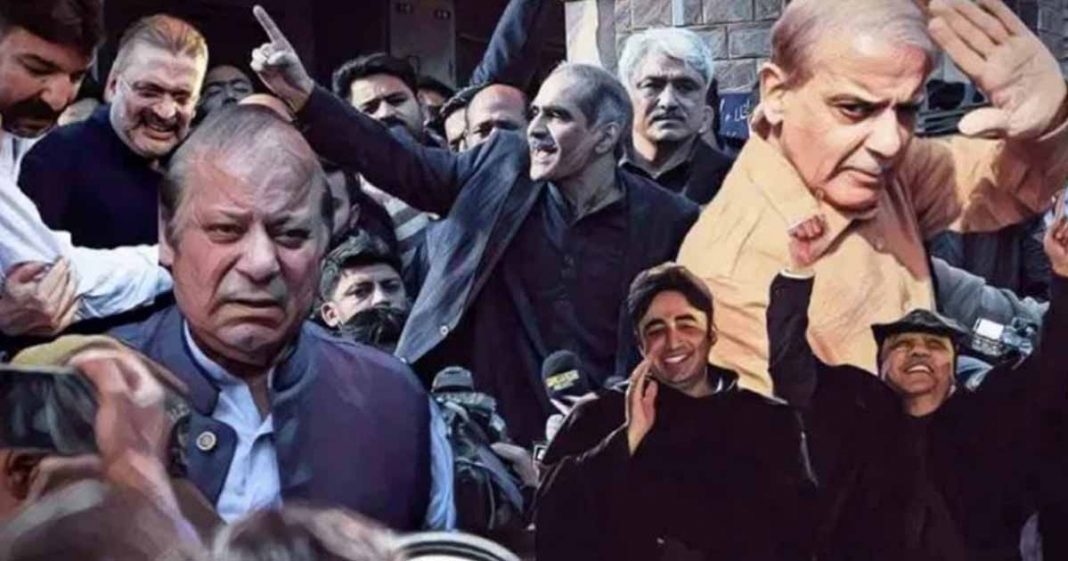With the recent rise of parochial politics and populist tendencies across the globe, one can discern polarized politics easily. Even the developed countries are facing the same intensity of it. Similarly, Pakistan is also one of the states that are quite prone to such phenomenon and has been exhibiting it since the start of a smooth political transition. The ongoing battle of “Us vs Them” and “bad vs good politicians “have produced drastic changes in Pakistani society. Such irreversible changes due to such a bizarre phenomenon had damaged the very tolerant feature of Pakistani society.
There is fragmentation across the board due to such polarized politics, even the younger generation has been compelled to take sides of political parties on social media forums. However, this changing nature of politics will certainly shake the edifice of national unity and cross-provincial integration as it brings with it multiple negative elements which become toxic for societal development. Owing to recent political fissures, the non-existence of political unity, and the emergence of abusive political culture, Pakistan is moving towards political polarization.
Read more: Pakistan Politics: Race to the bottom
Understanding the matter better
Maleeha Lodhi- former permanent representative of Pakistan to the UN and author of beyond the crisis state- defined the political polarization in her Oped published in Dawn newspaper as the phenomenon in which there are missing elements of political consensus and convergence- both indispensable for the political evolution of country- and there is constant disunity among political groups on major national issues.
The major causes of political polarization or divisive politics are multifarious; however, one of the most prominent ones is the lack of political consensus. Muhammad Waseem, in his recent book “Political Conflict in Pakistan”, has aptly described it as one of the major symptoms of Pakistan’s political features. There have always been acute differences between treasury benches and opposition on concerns of national importance. The intransigence of the country’s political leadership and the opposition’s unnecessary caustic remarks are the major factors responsible for such a lack of consensus. Hence, the prominent role of lack of political consensus in the genesis of political polarization cannot be rubbed under the carpet easily.
Similarly, the advent of abusive culture had also laid the foundation for polarized politics in our country. It has become a routine matter to watch vitriolic speeches made by politicians against their rivals and using indecent remarks which are always below the belt in nature. The sacrosanct institution like Parliament is also not free from such culture. Last year, the disappointing visuals of parliamentarians throwing files containing code of conduct at each other were shown on the media platform which manifests the dangerous way, our society is heading. It must be remembered that such abusive tendencies will not be productive for public consumption.
Read more: Senate Elections – Welcome to Pakistan Politics!
The bitter thing
The bitter thing to swallow for the public is that the entire polarized politics is being engendered for acquiring political leverage to form the government. The propensity of our politicians to grab political seats either by hook or by crook had certainly exposed the fault lines in our society. Various informal tactics and illegitimate ways are being explored in the political arena to sit on the throne and create obstructions for other contenders through witch-hunting and social engineering. This had created a perfect breeding ground for political fragmentation.
After discussing its causes, it is necessary to shed light on its perilous impacts. First, Political instability is the major ramification of political polarization. Unfortunately, due to such political instability, no major governmental institution is functioning at its peace, and there has been a gradual decline in the efficiency of every sector. The inconsistency of policy reforms is also quite rampant today. Second, there is always a looming threat of economic uncertainty. Mr. Raza Baqir- former head of State Bank of Pakistan- has also confessed in his latest Oped in Dawn published on 31st July that the economic fate of Pakistan is uncertain and its projections are unsatisfactory due to recent political fissures.
It must be remembered that economic development is always linked to political dialogue as charting out the efficient economic model is not possible in environ of divisive politics. Thus, the depleting reserves, economic dependence on neo-liberal financial institutions, and twin deficits cannot be resolved without political consensus which is mostly non-existent in Pakistan.
Third, with increasing heated politics, the level of tolerance among the masses is also decreasing. Gone are the days when political conflicts were sorted out through a negotiation process and sensible intermediaries. Today, everyone is involved in this end-game and ready to use his leverage against rival groups. Party sympathizers can be seen as burning the effigies of rival politicians; youth can be seen debating incessantly on Twitter space consistently and the public can be seen enraging each other by using vitriolic language due to different political lineage.
Read more: Politics of thugs in Pakistan
To eradicate the menace of such divisive politics, it is sine-qua-non to sign a new charter of democracy that ensures the peaceful transition of power among parties and upholding of political rights such as free and fair elections without political engineering and manipulative tactics. All the stakeholders must sit together and hold dialogue on national issues for the smooth operation of the governmental machinery. All the ideological differences between parties must be sorted out. The basic ideology of every political party should be national interest rather than holding grudges against opponents. Last but not least, media should play a positive role rather than promoting negative content for TRTs.
The writer is an Environmentalist, Independent researcher and Writer. The views expressed in this article are the author’s own and do not necessarily reflect the editorial policy of Global Village Space.














